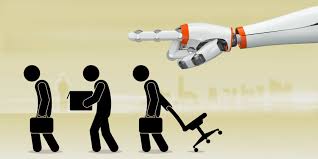
Breaking News
 Interview 1996 - The Fraud 1000x BIGGER Than Somali Day Care (NWNW #614)
Interview 1996 - The Fraud 1000x BIGGER Than Somali Day Care (NWNW #614)
 1 Min Ago: MORGAN STANLEY MEMO LEAKED Exit All Silver Positions Before Month End
1 Min Ago: MORGAN STANLEY MEMO LEAKED Exit All Silver Positions Before Month End
 Silver Price Collapse Begins Friday? - $14 Billion In Gold & Silver Sales Incoming
Silver Price Collapse Begins Friday? - $14 Billion In Gold & Silver Sales Incoming
 Freshman Rep goes full BEAST MODE during questioning over Somali scam…
Freshman Rep goes full BEAST MODE during questioning over Somali scam…
Top Tech News
 Kawasaki's four-legged robot-horse vehicle is going into production
Kawasaki's four-legged robot-horse vehicle is going into production
 The First Production All-Solid-State Battery Is Here, And It Promises 5-Minute Charging
The First Production All-Solid-State Battery Is Here, And It Promises 5-Minute Charging
 See inside the tech-topia cities billionaires are betting big on developing...
See inside the tech-topia cities billionaires are betting big on developing...
 Storage doesn't get much cheaper than this
Storage doesn't get much cheaper than this
 Laser weapons go mobile on US Army small vehicles
Laser weapons go mobile on US Army small vehicles
 EngineAI T800: Born to Disrupt! #EngineAI #robotics #newtechnology #newproduct
EngineAI T800: Born to Disrupt! #EngineAI #robotics #newtechnology #newproduct
 This Silicon Anode Breakthrough Could Mark A Turning Point For EV Batteries [Update]
This Silicon Anode Breakthrough Could Mark A Turning Point For EV Batteries [Update]
 Travel gadget promises to dry and iron your clothes – totally hands-free
Travel gadget promises to dry and iron your clothes – totally hands-free
 Perfect Aircrete, Kitchen Ingredients.
Perfect Aircrete, Kitchen Ingredients.
 Futuristic pixel-raising display lets you feel what's onscreen
Futuristic pixel-raising display lets you feel what's onscreen
Robots Are Coming for Our Jobs. Thank Goodness.

Technological progress has frequently resulted in changes in the nature of work, sometimes affecting skilled workers more and sometimes affecting unskilled workers more. But whichever categories of worker were affected, such changes have almost universally been to the benefit of workers of all skill levels. Let's consider two or three professions of the past.
Take the "tanner." Before technology transformed the nature of such work, Wikipedia tells us that tanning "was considered a noxious or 'odoriferous trade' and relegated to the outskirts of town, amongst the poor… The ancient tanner might use his bare feet to knead the skins in dung water, and the kneading could last two or three hours."



